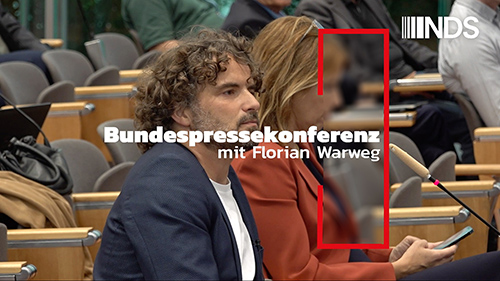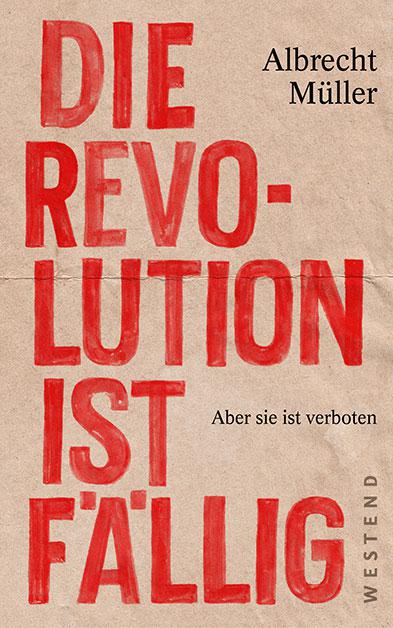„Third Annual Report of the Secretaries of Defense“, ein äußerst aufschlussreiches Dokument der Zeitgeschichte
Am 1. Dezember 1989, drei Wochen nach Öffnung der Mauer, trafen sich in Nashville in den USA die früheren Verteidigungsminister der USA, Frank Carlucci (Verteidigungsminister unter Reagan), Melvin Laird (Nixon), Robert McNamara (Kennedy, Johnson), Donald Rumsfeld (Ford), James Schlesinger (Nixon, Ford) und Caspar Weinberger (Reagan) zum “3. Jahresbericht der Verteidigungsminister” (“Third Annual Report of the Secretaries of Defense”).
Die Diskussion ist als Video in englischer Sprache hier verfügbar. Wir danken unserem Leser K. Schubert für den Hinweis auf dieses zeitgeschichtlich äußerst interessante Dokument, und wir danken Carsten Weikamp, der es für uns analysiert und zusammengefasst hat.
In der für heutige Maßstäbe außergewöhnlich diszipliniert geführten und straff moderierten Diskussionsrunde zeigen sich bereits eindrücklich Motive, Ziele und Leitlinie der US-amerikanischen Außen- und Sicherheitspolitik, wie wir sie bis heute erleben: Ein Hegemonialanspruch, der sich definiert einerseits aus dem Wunsch nach Frieden, Stabilität, Freiheit und nicht zuletzt wirtschaftlicher Stärke für sich selbst und “bevorzugt” auch für alle anderen Staaten und andererseits aus der Überzeugung, dass sich diese Ziele in der Welt nur von ihnen selbst und nur aus einer Position der (militärischen) Stärke aktiv verwirklichen lassen.
(Beispielhaft Donald Rumsfeld: “our first goal is to have a peaceful world, a stable world. Our second goal, I would add, however is to, to – that people live in freedom. That’s our preference, certainly, requirement for ourselves and our preference for others. Our third is that they had economies with sufficient vitality” und “Going forward, we’re gonna have to make a judgment as to what role our country ought to play. And a passive role would be terribly dangerous. But who do we want to lead, provide leadership in the world? Somebody else?”)
Einzig Robert McNamara weicht ab und plädiert für eine Wiederaufnahme der nach dem Zweiten Weltkrieg von Churchill und Roosevelt vorausgedachten Vision der UNO als eines Systems der Ordnung zwischenstaatlicher Beziehungen auf der Basis internationalen Rechts und kollektiver Sicherheit, welche durch Konfliktlösungsmechanismen und friedenssichernde Einsätze internationaler Organisationen gewährleistet werde. Er steht mit dieser Vorstellung unter seinen Amtsnachfolgern aber buchstäblich isoliert, auch wenn er den wesentlichen Grund für das bisherige Scheitern der Vision klar und unwidersprochen benennt: Den erklärten Unwillen der Supermächte, diese Mechanismen aufzubauen und mit den erforderlichen Mitteln auszustatten.
(“… the UN. It was to be a world of relations among states based on the rule of law. A system of collective security, enforced by conflict resolution activities and peace-keeping forces of the international organizations. … the US and the Soviet Union for their own reasons, immediately after the formation of the UN, prevented it from developing the conflict resolution and the peace keeping capabilities that Roosevelt and Churchill intended it should have.”)
Sein Einwurf, dass sich ein weltweiter Führungsanspruch nicht nur militärisch begründen, sondern auch auf wirtschaftlicher Stärke, sozialem Zusammenhalt und moralischer Führerschaft gründen müsse, wo die USA erkennbar deutliche Schwächen und Probleme hätten, verhallt unkommentiert.
(“… but leadership is not based on military power alone. Leadership is based on economic strength and social cohesion. And we have very very serious weakness in those areas in our society today. It’s based on moral leadership – we got a few problems there. “)
Zu groß ist im Vergleich die Angst, dass sich die unter Gorbatschow begonnene Öffnung des Ostens wörtlich “über Nacht” wieder auflösen und ein verschärfter Kalter Krieg zurückkehren könnte. In diesem Zusammenhang wird auch offen die Notwendigkeit der militärischen Verteidigung des strategischen Zugangs zu Ressourcen ausgesprochen.
(Caspar Weinberger: “I think we ought to make sure what kind of Soviet Union we are talking with. Whether it’s one that is led by Gorbachev assuming he is sincere or not, or whether it’s led by someone who ousted him because he was going too far in allowing too much freedom. Don’t forget that that leadership in the Soviet Union can change very rapidly, and that those reductions can be reversed over night, and we can’t reverse them over night, it takes us years to do so, and that is a period that I would not want to see us have to go through.” und
Frank Carlucci: “Our dependence on the Persian Gulf is growing – and all you have to do is look at the proximity of the Gulf to the Soviet Union. … I think that illustrates the point that they can make mischief for us very easily and unfortunately it costs money to protect our strategic interests.”)
Außerdem fürchtet man noch immer die Wiederkehr von Verwerfungen und Instabilität in (West-)Europa, wegen derer man im laufenden Jahrhundert bereits zweimal zu Hilfe gekommen sei. Man erwartet, dass die deutsche Wiedervereinigung auf die eine oder andere Weise zustande kommen werde, will aber sicherstellen, dass dies erst im Rahmen einer neuen europäischen Sicherheitsarchitektur stattfindet, die man noch nicht kenne, aber selbst wesentlich mit prägen müsse.
(James Schlesinger: “Germany’s neighbors … are concerned about the recrudescence of a powerful Germany. And we ought to be part of that. We have gone to Europe twice in this century to deal with disruptions, European civil war. American forces helped to stabilize it.”,
Frank Carlucci: “I think it is vitally important for the security of Europe, and to reassure those who may be living in what at best will be unstable circumstances, that the United States presence, in one way or another, will remain.” und
Robert McNamara: “he [Helmut Kohl in seinem 10-Punkte-Plan] comes to the same conclusion I think that Gorbachev does and that I would: There should be no reunification until a new political framework is available. He uses these exact words: The reunified state, after confederation, must, quote, fit into the architectural pattern of Europe, unquote.” –
Donald Rumsfeld: “And that’s where the United States is gonna have to be very involved.”)
Dass die Bedrohungen des Kalten Krieges als noch nicht erledigt angesehen werden, zeigt sich auch in der Frage der Abrüstung und besonders in der nach Einsparungsmöglichkeiten im Verteidigungsbudget. Hier wird weniger über Geld als vornehmlich über effektivere, dem Kongress und der Öffentlichkeit besser zu vermittelnde Ermittlung des Budgets geredet, da man insbesondere dem nicht ausreichend stark von Militär-Lobbyisten durchsetzten Kongress die notwendige Einsicht in die empfundenen Erforderlichkeiten abspricht.
(Melvin Laird: “We cannot let the military services call all the shots, and we can’t let the Congress call all the shots, or we’re gonna have chaos in our national security program of the future. … the time has come when you have to really have strong, tight leadership over the budget in the Department of Defense, and articulate that budget very clearly to the Congress and I think you’ll get good support.” und
Caspar Weinberger: “I think Congress reflects to a very considerable and unfortunate extent the interest that helped get them elected, and the strongest lobbies are not defense lobbies.”)
Für Entscheidungen bzgl. substantieller Budgetreduzierungen bestünden noch zu viele Unwägbarkeiten. Einigkeit besteht einzig, dass man die NATO-Partner, Europa betreffend, finanziell stärker heranziehen will.
(Donald Rumsfeld: “I mean the fact of the matter is that it requires answers to so many assumptions about what the world’s gonna evolve and yet by asking it the way it’s asked, … all you get for answers is a bunch of biases. And in fact the answer is, the United States ought not to reduce anything except as they have a concept and demonstrated alterations in the threat that exists in the world.” und
James Schlesinger: “We are not going to stand by while our European allies cut their forces, and we pay more to defend them, that is not politically saleable to the American people.”)
Hier noch die Zusammenfassung [PDF – 94 KB].














